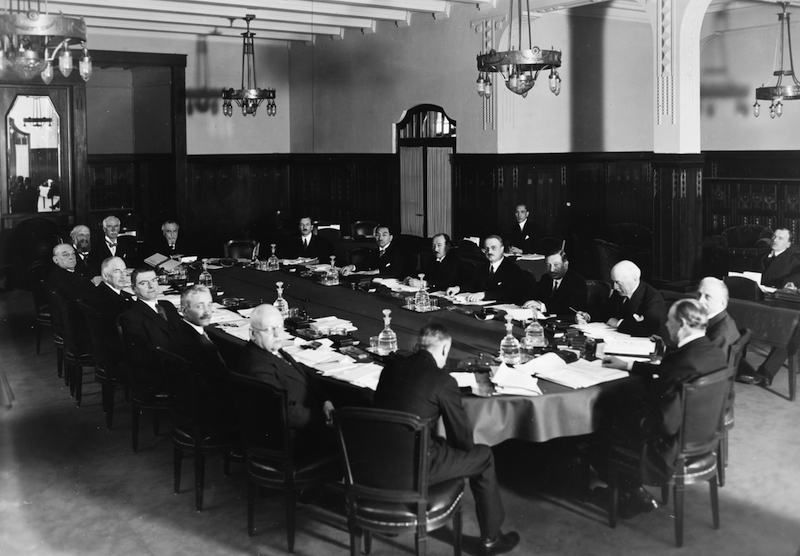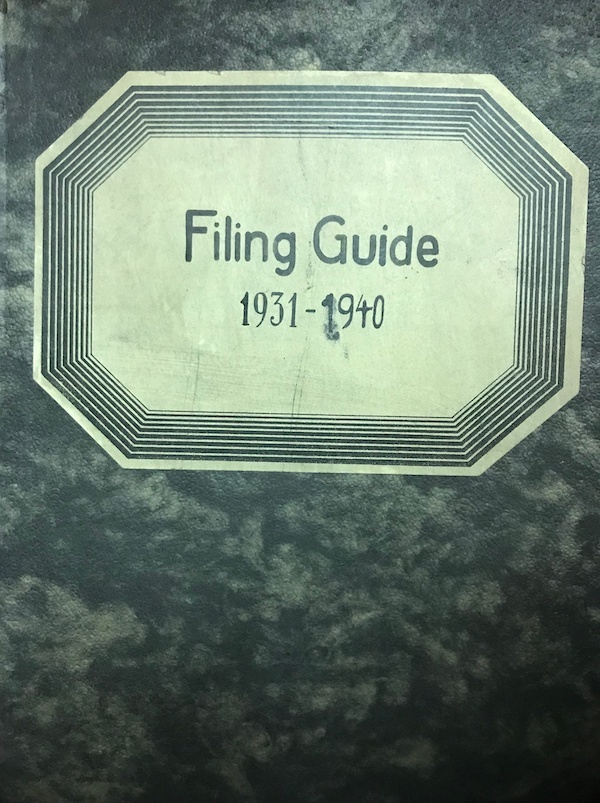The Archives of the Bank for International Settlements
The BIS mandate is to foster cooperation among central banks and other agencies in pursuit of monetary and financial stability. The BIS Archives provide a useful tool to researchers wanting to shed light on the history of international monetary and financial cooperation in general, and of the BIS in particular.
Records and archives services
The Records and Archives section is part of the Information Technology and Services unit, and is responsible for the management of active and inactive records, as well as the management of the Archives. There is an ever-increasing need to capture, manage and provide access to digital records both internally, and outside the organisation, and therefore to manage their long-term preservation.
The main role of the Archives is to support the business of the BIS and to foster research. Given the Bank’s significant role as an international financial organisation, its material is of interest to researchers outside the institution. We have an average of 12 researchers visiting each year, with approximately 50 files consulted per researcher. This keeps our small team busy. A survey conducted during the past year revealed that external researchers learn about the BIS Archives from other colleagues, their university professors’ recommendations and through references to our archival holdings in economic or financial publications, as well as from our the BIS website (www.bis.org). We also receive a fair number of queries for photographs of former central banks governors and BIS managers. Researchers who come to the BIS archives are mainly economists and historians from various academic institution around the world. Their research output usually takes the form of a PhD thesis, an article or a book.
Currently, access to the BIS Archives is only on-site, meaning external researchers have the privilege of consulting original files. We are currently working on digitising selected files and making our most popular collections available remotely to enable access to our material for more researchers.

Archives collection
The BIS Archives are held in Basel and enjoy special protection under the Bank’s Headquarters Agreement (art 3,2). The BIS Archives are not public archives and the BIS does not have a legal obligation to grant access to its records. However, in the interest of openness and academic research, the BIS Board of Directors decided in 1997 to voluntarily open for research the Bank’s historical files that are over thirty years old. The conditions for access and guidance to the material held in the Archives are outlined in the Guide to the BIS Archives, available on the BIS website. A limited number of records remain private or confidential after the thirty-year period. These records largely reflect the organisational structure of the Bank and are mainly paper-based. We also have a small photographic collection, a publication collection going back to the 1930s and an extensive press review collection that includes press cuttings in several languages gathered from late 1920s to present day, classified by subject or by country. The BIS Archives also acts as custodian of the archives of some of the committees hosted by our institution, such as the Basel Committee for Banking Supervision.
The records preserved by the BIS Archives date back to the late 1920s. They support research and the on-going business of the BIS, serve as an institutional memory and testimony to the role the BIS has played in historical events and developments in the monetary and financial sphere.
As an international organisation, the BIS is not bound by national freedom of information legislation or any other local or national legal requirements on how to manage records and archival holdings. Retention periods for records are set in accordance with the BIS’s own records management policy and are not subject to national regulations. These are the two elements that make records management and archival work at the BIS different from that in public institutions. However, in our work we follow the usual international standards and best practices specific to our profession.

Cooperation
We are a member of several international professional organisations: the International Council of Archives (ICA), the ESCB/SSM Information Management Network, ARMA International, the Association for Intelligent Information (AIIM), Verein Schweizerischer Archivarinnen und Archivare (VSA-AAS) and the European Association for Banking and Financial History (eabh). Our work does not take place in isolation as we are part of the wider professional community and keep up to date with the latest developments in records and archives management.

Résumé
- English
- Deutsch
- Français
Established in 1930, the Bank for International Settlements is the oldest international financial institution. From its inception to the present day, the BIS has played a number of key roles in the global economy, from settling reparation payments imposed on Germany following the First World War, to serving central banks in their pursuit of monetary and financial stability.
The documents created and collected by the BIS are in the care of the Records and Archives section and draw in many external researchers every year since the BIS Archives were opened to the public in March 1998.
Die 1930 gegründete Bank für Internationalen Zahlungsausgleich (BIZ) ist die älteste internationale Finanzinstitution. Von ihren Anfängen bis heute hat die BIZ eine Reihe von Schlüsselrollen in der Weltwirtschaft gespielt, von der Abwicklung der Reparationszahlungen, die Deutschland nach dem Ersten Weltkrieg auferlegt wurden, bis hin zur Unterstützung der Zentralbanken bei ihrem Streben nach Währungs- und Finanzstabilität.
Die von der BIZ erstellten und gesammelten Dokumente befinden sich in der Obhut der Abteilung «Records and Archives» und ziehen seit der Öffnung der BIZ-Archive für die Öffentlichkeit im März 1998 jedes Jahr viele externe Forscher an.
Créée en 1930, la Banque des règlements internationaux (BRI) est la plus ancienne institution financière internationale. Depuis sa création, la BRI a joué un rôle clé dans l'économie mondiale à plusieurs reprises, depuis le règlement des paiements de réparation imposés à l'Allemagne après la Première Guerre mondiale, jusqu'au service des banques centrales dans leur quête de stabilité monétaire et financière.
Les documents créés et collectés par la BRI sont confiés à la section «Records and Archives» et attirent chaque année de nombreux chercheurs externes depuis l'ouverture des archives de la BRI au public en mars 1998.


